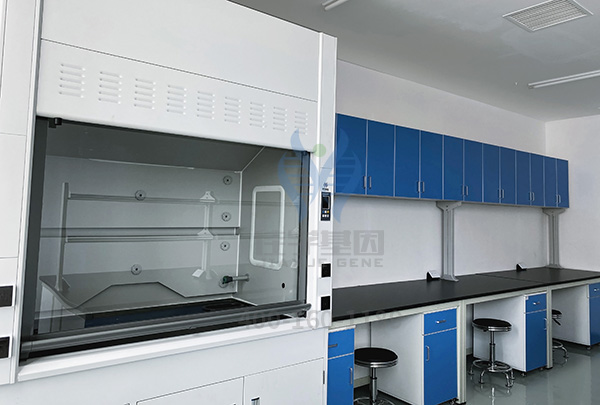【佳学基因检测】分子药理学CHRM3的基本知识要点
基因检测的序列名称:
CHRM3
人体基因序列变化与疾病表征数据库中的基因代码:
1131
人体基因序列数据库中国际交流名称全称
cholinergic receptor muscarinic 3
中国数据库中基因全称:
胆碱能受体毒蕈碱3
基因检测报告英文版基因简介
The muscarinic cholinergic receptors belong to a larger family of G protein-coupled receptors. The functional diversity of these receptors is defined by the binding of acetylcholine and includes cellular responses such as adenylate cyclase inhibition, phosphoinositide degeneration, and potassium channel mediation. Muscarinic receptors influence many effects of acetylcholine in the central and peripheral nervous system. The muscarinic cholinergic receptor 3 controls smooth muscle contraction and its stimulation causes secretion of glandular tissue. Alternative promoter use and alternative splicing results in multiple transcript variants that have different tissue specificities. [provided by RefSeq, Dec 2016]
基因突变所影响的基因信息
毒蕈碱胆碱能受体属于更大的G蛋白偶联受体家族。这些受体的功能多样性由乙酰胆碱的结合决定,包括细胞反应,例如腺苷酸环化酶抑制,磷酸肌醇变性和钾通道介导。毒蕈碱受体影响乙酰胆碱在中枢神经系统和周围神经系统中的多种作用。毒蕈碱胆碱能受体3控制平滑肌收缩,其刺激引起腺体组织的分泌。替代启动子的使用和替代剪接导致具有不同组织特异性的多个转录物变体。[由RefSeq提供,2016年12月]
国际国内该碱基基因序列的其他英语文字母简称:
EGBRS, HM3, PBS
基因解码对该基因序列在细胞核中的染色体所给予的编号:
该基因序列位于人类第1号染色体上。
基因解码对基因序列的精准定位
该基因序列在GRCh37版本中的起始位置坐标为:239549876;结束位置坐标为:240078750。该基因序列在GRCh38版本中的起始位置坐标为:239386565;结束位置坐标为:239915450。精准的基因信息定位是基因检测和对检测结果进行准确解读的关键。
佳学基因解码对该基因的功能分类:国际版
G-protein coupled receptors/GPCRs excl olfactory receptors
基因解码对该基因的功能分类:中文版
G 蛋白偶联受体/GPCR 不包括嗅觉受体
结构与功能基因解码所揭示的该基因在细胞内发挥作用的场所(国际版):
Plasma membrane
结构与功能基因解码所揭示的该基因发挥作用的细胞内位置(中文版):
质膜
该基因序列变化后增加的疾病风险(国际版):
Absent abdominal musculature; Prune Belly Syndrome; Urethral obstruction sequence; Congenital posterior urethral valves; Urinary Bladder Diseases; Aplasia/Hypoplasia of the lungs; Dilatation of ureter; Uroureter; Ascites; Congenital heart disease; Recurrent urinary tract infection; Abnormality of the ribs; Maternal oligohydramnios; Oligohydramnios; Decreased fertility; Vesico-Ureteral Reflux; Skin Abnormalities; Xerostomia; Anus, Imperforate; Hip Dislocation, Congenital; Multicystic Dysplastic Kidney; Congenital pectus carinatum; Congenital Heart Defects; Hydronephrosis; Kidney Failure; Renal failure in adulthood; Small testicle; Patent ductus arteriosus; Renal Insufficiency; Dermatologic disorders; Pectus excavatum; Congenital clubfoot; Dyschezia; Liver Cirrhosis; Constipation; Recurrent respiratory infections; Mood Disorders; Chemical and Drug Induced Liver Injury; Unipolar Depression; Cryptorchidism; Major Depressive Disorder; Bipolar Disorder; Autosomal recessive predisposition
如果该基因突变后,风险可能增加的疾病类型(中文版):
没有腹部肌肉组织;梅干腹综合症;尿道梗阻序列;先天性后尿道瓣膜;膀胱疾病;肺发育不全/发育不全;输尿管扩张;输尿管;腹水;先天性心脏病;复发性尿路感染;肋骨异常;母体羊水过少;羊水过少;生育能力下降;膀胱输尿管反流;皮肤异常;口干;肛门无孔;髋关节脱位先天性;多囊性发育不良肾;先天性鸡胸;先天性心脏缺陷;肾积水;肾功能衰竭;成年期肾功能衰竭;小睾丸;动脉导管未闭;肾功能不全;皮肤病;漏斗胸;先天性马蹄内翻足;排便困难;肝硬化;便秘;反复呼吸道感染;情绪障碍;化学和药物引起的肝损伤;单极抑郁症;隐睾;严重抑郁症;躁郁症;常染色体隐性易感性
GWAS基因检测所建立的与该基因的疾病关联(国际版):
Hypertension
GWAS基因检测所解码的该基因突变会增加风险的疾病种类(中文版):
以该基因做靶点的药物(国际版):
Cevimeline (Receptor activity);Tramadol (Receptor activity);Succinylcholine (Receptor activity);Ziprasidone (Receptor activity);Disopyramide (Receptor activity);Amitriptyline (Receptor activity);Ipratropium bromide (Receptor activity);Olanzapine (Receptor activity);Metixene (Receptor activity);Terfenadine (Receptor activity);Clozapine (Receptor activity);Trihexyphenidyl (Receptor activity);Oxyphencyclimine (Receptor activity);Procyclidine (Receptor activity);Loxapine (Receptor activity);Promazine (Receptor activity);Hyoscyamine (Receptor activity);Cyproheptadine (Receptor activity);Imipramine (Receptor activity);Methylscopolamine bromide (Receptor activity);Chlorpromazine (Receptor activity);Darifenacin (Receptor activity);Tridihexethyl (Receptor activity);Anisotropine Methylbromide (Receptor activity);Nortriptyline (Receptor activity);Atropine (Receptor activity);Nicardipine (Receptor activity);Paroxetine (Receptor activity);Homatropine Methylbromide (Receptor activity);Diphemanil Methylsulfate (Receptor activity);Scopolamine (Receptor activity);Benzquinamide (Receptor activity);Propiomazine (Receptor activity);Cryptenamine (Receptor activity);Tropicamide (Receptor activity);Brompheniramine (Receptor activity);Maprotiline (Receptor activity);Glycopyrronium (Receptor activity);Tolterodine (Receptor activity);Oxybutynin (Receptor activity);Promethazine (Receptor activity);Pilocarpine (Receptor activity);Doxepin (Receptor activity);Desipramine (Receptor activity);Quetiapine (Receptor activity);Mivacurium (Receptor activity);Diphenidol (Receptor activity);Aripiprazole (Receptor activity);Chlorprothixene (Receptor activity);Pancuronium (Receptor activity);Pipecuronium (Receptor activity);Methotrimeprazine (Receptor activity);Tiotropium (Receptor activity);Solifenacin (Receptor activity);Isopropamide (Receptor activity);Mepenzolate (Receptor activity);Itopride (Receptor activity);ALKS 27 (Receptor activity);Fesoterodine (Receptor activity);Methacholine (Receptor activity);Aclidinium (Receptor activity);Umeclidinium (Receptor activity)
针对该基因所产生的突变,可能有精准效果的药物(中文版):
西维美林(受体活性);曲马多(受体活性);琥珀胆碱(受体活性);齐拉西酮(受体活性);丙吡胺(受体活性);阿米替林(受体活性);异丙托溴铵(受体活性);奥氮平(受体活性);美西烯(受体活性);特非那定(受体活性);氯氮平(受体活性);苯海索(受体活性);氧苯环利定(受体活性);丙环利定(受体活性);洛沙平(受体活性);丙嗪(受体活性);芍药碱(受体活性)活性);赛庚啶(受体活性);丙咪嗪(受体活性);溴化甲基东莨菪碱(受体活性);氯丙嗪(受体活性);达非那新(受体活性);三己乙酯(受体活性);异丙嗪(受体活性);去甲替林(受体活性)活性);阿托品(受体活性);尼卡地平(受体活性);帕罗西汀(受体活性);后马托品甲基溴(受体活性);Diphemanil Methylsulfate(受体活性);东莨菪碱(受体活性);苯并喹酰胺(受体活性);丙哌嗪(受体活性)活性);Cryptenamine (受体活性);Tropicamide (受体活性);溴苯那敏(受体活性);马普替林(受体活性);格隆铵(受体活性);托特罗定(受体活性);奥昔布宁(受体活性);异丙嗪(受体活性) ;毛果芸香碱(受体活性);多塞平(受体活性);地昔帕明(受体活性);喹硫平(受体活性);米库氯铵(受体活性);地苯尼多(受体活性);阿立哌唑(受体活性);氯丙噻吨(受体活性);泮库溴铵(受体活性);哌库溴铵(受体活性);甲氧美拉嗪(受体活性);噻托溴铵(受体活性);索利那新(受体活性);异丙丙胺(受体活性);甲哌佐酯(受体活性);伊托必利(受体活性);ALKS 27 (受体活性);非索罗定(受体活性);乙酰甲胆碱(受体活性);阿地溴铵(受体活性);乌美溴铵(受体活性)




